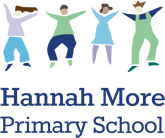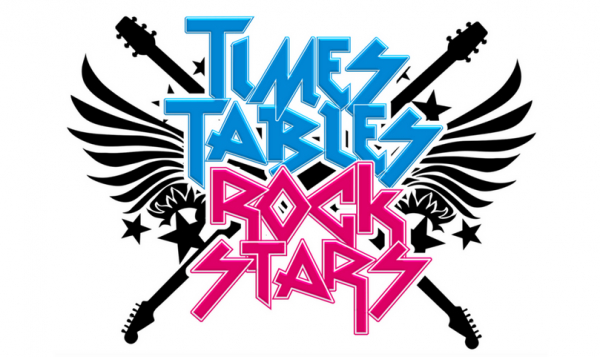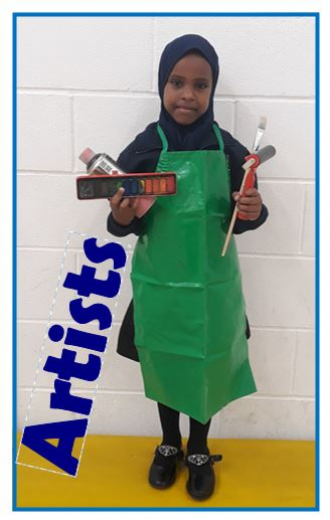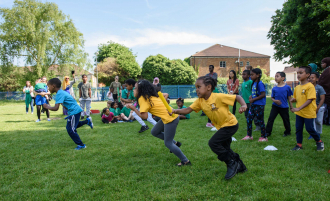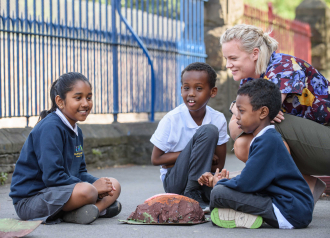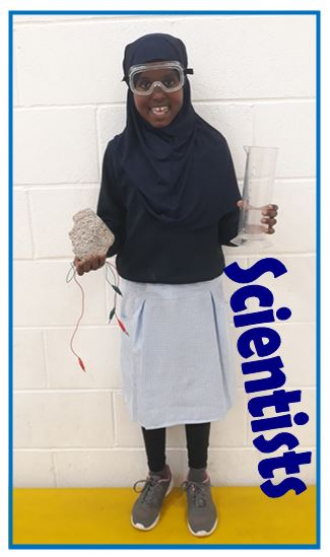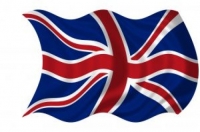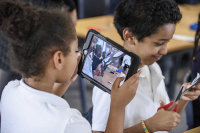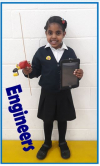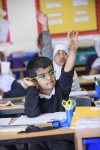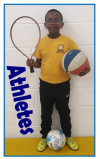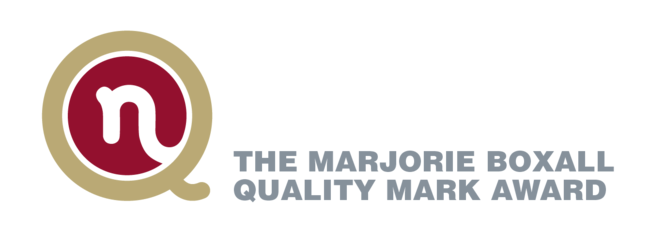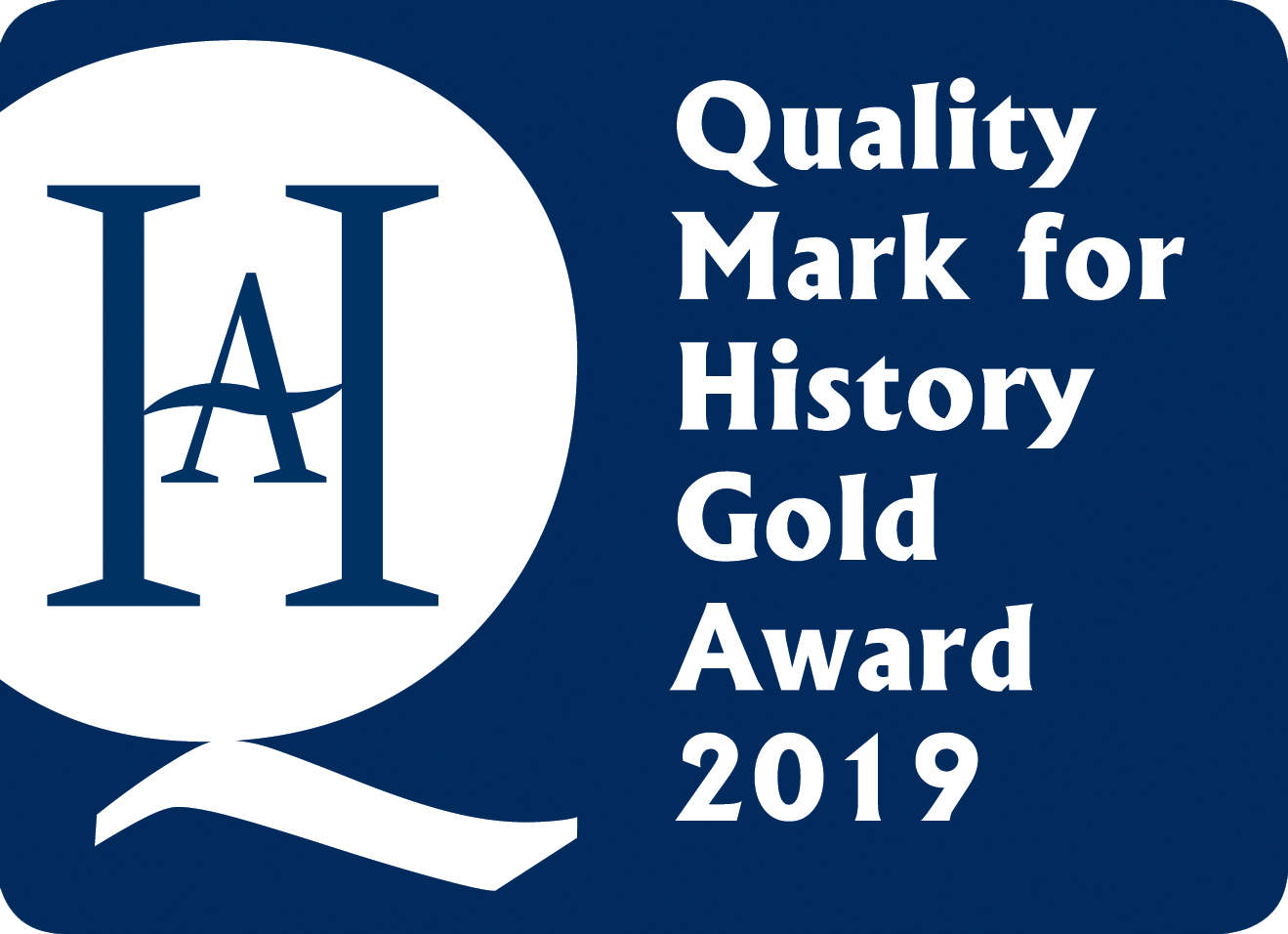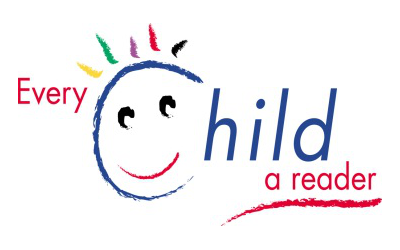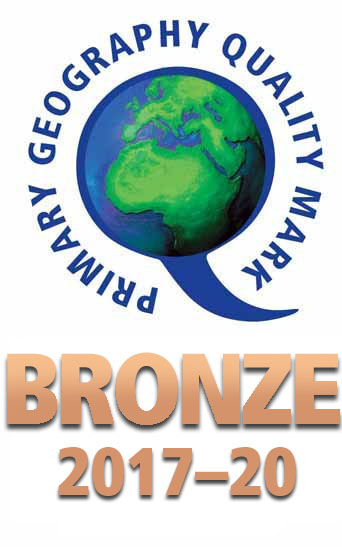
Our learning (29)
Our Skills for Life curriculum was created in 2023 in response to the needs of our children. The lessons were created ensuring that the recommedations from the PSHE association had been followed. Children follow progressive strands as they move through the school.
Term 1 - Managing Emotions - linked to Zones of Regulation
Term 2 - Communicating with others
Term 3 - Staying safe and healthy online
Term 4 - Building a healthy mind and body
Term 5 - rejecting discrimination
Term 6 - Exploring money and careers
The stage is set for the third Hannah More TTRS 'Battle of the Bands', this time an extended edition over the Easter holidays.
Can one class snatch the crown from reigning champions Year 5 Owl, or will the two-time victors storm to their third victory in a row?
It's time to rock on and find out!
Intent
At Hannah More Primary School, we aim to provide an Art and Design curriculum that allows for self-expression and creativity, which in turn will build confidence and a sense of individuality. Through art, we encourage critical thinking and believe that art enables children to interpret the world around them. We aim to develop children’s love of art and their ability to evaluate and analyse their own work and the work of others.
Art and design at Hannah More covers a wide range of arts and crafts and allows children to study great artists from around the world to enable children to understand how art both reflects and shapes our history and culture. We hope to engage, inspire and challenge pupils, equipping them with the knowledge, skills and techniques needed to independently experiment, invent and create their own works of art and design proficiently.
Implementation
Art is given a high-profile at Hannah More and is an integrated part of the curriculum. The curriculum offer is based on the National Curriculum for Art and Design and is linked to the enquiries studied each term. In addition, we have an arts week, exploring art from around the world, enabling children to work with a wide range of mediums and developing the language of art. When working creatively, children think of themselves as ‘artists’.
At Hannah More, children will explore art in many forms: sketching, drawing, painting, collage, sculpture, digital media and collage. Care has been taken when planning the curriculum to ensure that children’s experience of art is rich and diverse. To enhance their learning, children study the work of famous local, national and global artists.
The art and design curriculum at Hannah More is progressive, allowing children to build on skills, knowledge and techniques as they go through the school. For instance, collage is taught in KS1, LKS2 and again in UKS2 in a way that builds on prior learning of this media form. At Hannah More, sketchbooks are used with pride. Children use these to analyse the work of great artists and practise their skills and develop and express their ideas. It is here children can work through their ideas, experiment, make mistakes and amend their ideas before creating their final piece. We celebrate children’s creativity around the school and each class has an ‘art gallery’ showcasing their art and design work.
During the EYFS, pupils are encouraged to express themselves and develop their imagination and creativity through a combination of child initiated and adult directed art and design activities.
They have the opportunity to:
- Explore different media such as crayons, pastels, paint, chalk and charcoal on a daily basis
- Express their ideas and individuality using a variety of craft resources
- Develop their fine motor skills and pencil control
- Create models using junk material and clay
- Look at examples of famous artists
- Develop their drawing skills in response to core text
Impact
It is our aim that children will retain knowledge and skills taught within each unit of work, remember these and understand how to use and apply these in their own art work, whilst beginning to understand what being in ‘artist’ means. At Hannah More Primary School, we are able to measure the impact that Art and Design has had for all children by:
- Determining the extent to which objectives are met within each lesson and overall, at the end of each enquiry.
- Summative assessment of pupil discussions about their learning.
- Images of the children’s practical learning.
- Interviewing the pupils about their learning (pupil voice).
By the time children leave Hannah More Primary School, we want them to have developed a passion for art and creativity, working both independently and collaboratively. They will have grown in confidence when using a range of tools and techniques, becoming artists that can apply the skills and knowledge that they have developed throughout the years and respond critically to their own and other’s work.
By the end of each Key Stage, all children can apply and understand the skills, knowledge and processes they have been taught so that they are proficient in drawing, painting, sculpture and other art, craft, and design techniques. Most importantly, children will leave Hannah More knowing that it is okay to make mistakes along their journey, they will think for themselves and be critical about their own and other’s work- knowing how they can improve it or knowing when to stop if they are satisfied with their creative work.
Intent
Science at Hannah More inspires, excites and develops children’s curiosity whilst teaching them the knowledge and skills they need to take advantage of the opportunities, responsibilities and experiences of later life. In their lessons, children are not passively taught science but rather become Scientists in active, practical sessions that allow them to discover knowledge for themselves through their application of scientific skills. We endeavour to use Science to build cultural capital and provide children with valuable life experiences that will enable them to become socially mobile in later life. Children study famous scientists and are taught about how the topic they are studying links to scientific career paths. We place a strong emphasis on learning about our local area to allow children to make connections in the place they live and know what scientific links there are in their community that they could utilise when they are older. At Hannah More, Science is taught with a strong emphasis on Oracy, which enables our pupils to develop understanding and articulate their ideas in order to better understand the world around them.
Implementation
Science is taught throughout three science enquiries during the year for most year groups except for Year Four and Six who have four science enquiries. At Hannah More we use a flexible timetable so science may be taught for seven hours one week and two the next, in order to interweave it into English and other enquiry subjects in a systematic and sequenced order that builds on children’s knowledge and skills. Science skills as set out in the National Curriculum are not taught separately but used as a vehicle for children to discover knowledge. Throughout their enquiry children ask questions and decide which type of scientific enquiry would be best to answer them including observing over time, pattern seeking, identifying and classifying, researching using secondary sources and conducting comparative and fair tests.
The teachers and subject leader have high expectations of every pupil and learning is challenging to ensure that every child is extended. The needs of every child are identified and steps are taken to ensure that these needs are met. In science, this can involve; pairing non-technical and technical vocabulary, visual aids, breaking learning into smaller steps and providing additional resources when needed. Children working at greater depth level in science will be extended with challenges which requires them to reason more deeply about the learning covered in the lesson.
Science at Hannah More is taught in a way that drives children’s curiosity and enjoyment in science. Alongside the enquiries, children’s engagement in science is fostered by STEM week, Nature Clubs, Eco-committee and weekly news assemblies which often touch on scientific discoveries. Our large school grounds are used frequently to assist in the study of plants, life-cycles, animals and the seasons. We also teach children about broader world issues such as climate change and plastic pollution and in this way develop them as responsible and active citizens. Children’s learning and engagement is also fostered through science trips to places such as Science Creates, the Bristol Botanic Gardens and We the Curious.
During EYFS, pupils explore the natural world through a combination of child initiated and adult directed activities.
They have the opportunities to:
- Observe closely and record findings through drawings
- Identify plants, animals, the weather, seasons and materials and explore similarities and differences between them
- Observe the lifecycle of plants and animals
- Explore changing states of matter
- Begin to learn how humans should stay healthy
Impact
Formative assessment is used throughout an enquiry by teachers to ensure that key concepts are understood and children have a thorough, rather than superficial understanding of the topic they have studied. Throughout an enquiry, lessons are flexible so that teaching can be adapted in light of this assessment in order to respond to a class’ learning and clear feedback is given to ensure that any gaps or misconceptions can be addressed. In addition to ongoing assessment, children carry out a ‘cold task’ at the beginning of each enquiry to share what they currently know and repeat this as a ‘hot task’ at the end to demonstrate what they have learnt. This provides the teacher with information about which children have made good progress throughout the enquiry, who has a secure understanding and what gaps might still need to be filled. As a result, pupils leave Hannah More with a deep understanding of the topics covered and are able to transfer this knowledge to a range of situations, skills and subjects.
At Hannah More we develop a secure foundation in biology, chemistry and physics. Our pupils demonstrate a love of science and a desire to widen their knowledge through questioning. Due to their knowledge of scientific processes they are able to avoid misconceptions and can explain why they are not correct using rich scientific vocabulary. Additionally, they can plan, carry out and present scientific experiments, using their knowledge to inform them. In this way children will be equipped with the scientific skills and knowledge needed for the start of secondary school and their future beyond Hannah More.
Each week we listen to different music in assemblies and we learn a little about each piece - the music itself and the musician. Below you can read about the most recent music we have been listening to.
At Hannah More, we believe in the fundamental British values of democracy, the rule of law, individual liberty, as well as mutual respect and tolerance for those of different faiths, beliefs and way of life. These values are promoted in a variety of ways.
Democracy: Making Decisions Together
- Staff encourage children to know that their views count. Representatives from each class share the children’s views at the School parliament and children are encouraged to value each other’s views.
- Children experience democracy in action in our classrooms, for example voting on issues relevant to classroom life.
- Children are encouraged to talk about their feelings using our Zones of Regulation boards. Language for talking about and managing feelings is taught through our PSHE curriculum, ‘Skills for life’.
Rule of Law: Understanding Rules Matter
- Children understand their own and others’ behaviour and its consequences, through explicit teaching, for example during Anti-Bullying Week, and through the School Behaviour Policy and its application. Role play and social stories are used to help children understand the consequences of their choices in our PSHE ‘Skills for life’ lessons.
- Children learn to distinguish right from wrong. Ethical issues are discussed in circle times, through some Topics, for example the Year 5 Topic ‘Fairtrade’, and through visits from the ‘Life Bus’.
- Staff collaborate with children to create a Class Charter and class rules.
Individual Liberty: Freedom for All
- Children develop a positive sense of self through taking risks in play, and developing their confidence and self-esteem through team building activities.
- Children are given a range of experiences that develop their sense of shared responsibility, for example through raising money for Sports Relief and Children in Need.
- By focussing on important individuals from the past in Black History Week, they are given the chance to reflect on the importance of freedom for everyone.
- They reflect on their differences and understand we are free to have different opinions. The ability to express opinions respectfully is developed through the teaching of Philosophy.
Mutual Respect and Tolerance: Treat Others as You Want to be Treated
- There is an ethos of inclusivity where views, faiths, cultures, races and family-types are valued, and children are engaged with the wider community. This is promoted through our School Values ‘Openness’ and ‘Respect’.
- Children acquire tolerance and appreciation of their own and other cultures through a varied RE Curriculum involving the study of a variety of world religions, and through the celebration of varied religious and cultural celebrations, such as Diwali, Eid, Chinese New Year, Easter and Christmas.
- Children are taught about similarities and differences between themselves and others through termly Topics, such as the Year 2 Topic ‘Namaste London’ about India, where children visit a Hindu Temple, and the Year 4 Topic, ‘Africa’.
- Children are taught about the importance of tolerant behaviours such as sharing and respecting each other’s’ opinions through explicit modelling and encouragement by staff.
- Diverse attitudes are promoted and stereotypes are challenged through our PSHE ‘Skills for life’ lessons, for example through sharing stories which reflect and value the diversity of children’s experiences.
Intent
At Hannah More, we recognise that the world of technology is ever changing and evolving. In order to best prepare our learners for their futures, we aim to give them a wide range of opportunities to gain computing knowledge and develop their skills.
Our Computing curriculum focuses on a progression of skills in coding, computing in the wider world and creating media to ensure that children become competent in all aspects of the curriculum. These strands are revisited repeatedly during children’s time in school to ensure the learning is embedded and skills are successfully developed. Oracy is embedded throughout the teaching of computing by using talk tactics to promote and scaffold computational thinking.
Online safety is at the heart of our Computing curriculum. Through our termly focusses we equip our students with the necessary skills to be safe, responsible and respectful when using the internet. Our intention is that Computing also supports the children’s creativity, engages them in their wider curriculum learning and enriches their experiences in school.
Implementation
We follow a broad and balanced Computing curriculum that builds on previous learning and provides both support and challenge for learners. To best implement the computing curriculum we use a variety of schemes such as Espresso coding, TeachComputing and Project Evolve E-safety.
There are termly computing themes which are followed across KS1 and KS2, as fortnightly 45-minute lessons.
Term 1 and 2: Coding using Espresso coding.
Term 3: 6 E-safety lessons as part of our Skills for Life (PSHE) curriculum
Term 4, 5 and 6: Computing systems and networks, data and information and creating media
In addition, each term has an E-safety focus in which there is an assembly and in-class lesson based on topics adapted from the Project Evolve scheme of learning.
At Hannah More, we want to ensure that Computing is embedded in our whole school curriculum and that opportunities for enhancing learning by using technology are always taken. Therefore, every year group has at least one computing enquiry outcome, for example: filming documentaries, googles slides presentations and crumble board designs.
During EYFS, pupils being to develop their understanding of computing through a combination of child initiated and adult directed activities.
They have the opportunities to:
- Take photos on cameras or tablets
- Play games on the interactive whiteboard
- Explore mechanical toys
- Watch video and music clips
Impact
At Hannah More children enjoy and value Computing and know why they are doing things, not just how. Children will understand and appreciate the value of Computing in the real world. Viewing computing in different learning contexts such as creating graphs in science, documentaries in history and presentations in English, as well as authentic contexts, such as meeting experts in the computing field allows children to see themselves as designers, engineers, coders and have high aspirations for themselves. Progress in Computing is demonstrated through regularly reviewing and scrutinising children’s work, primarily through:
- Observing how they perform in lessons
- Pupil voice
- Floor book monitoring
Learning a foreign language provides an opening to learn about other cultures.
At Hannah More, we believe that with our high-quality language education, we foster children’s curiosity and deepen their understanding of the world.
The foreign language taught at Hannah More is French. This language is taught in Key Stage 2.
Our French lessons enable children to express their ideas and thoughts in another language and to understand and respond to others, both in speech (Years 3 and 4) and in writing (Year 5 and 6).
We also provide opportunities for children to communicate for practical purposes, learn new ways of thinking and read books written in French.
In French lessons, children are taught to:
- listen to spoken French language
- explore the patterns and sounds of language through stories, songs, poems and rhymes
- Have a simple conversation; ask and answer questions; express opinions
- speak in sentences, using basic, familiar vocabulary and phrases
- develop accurate pronunciation of words so that others can understand them
- broaden their vocabulary and develop understanding of new words
- use a French dictionary confidently
- describe people, places, things and actions
- write phrases from memory and create new sentences
